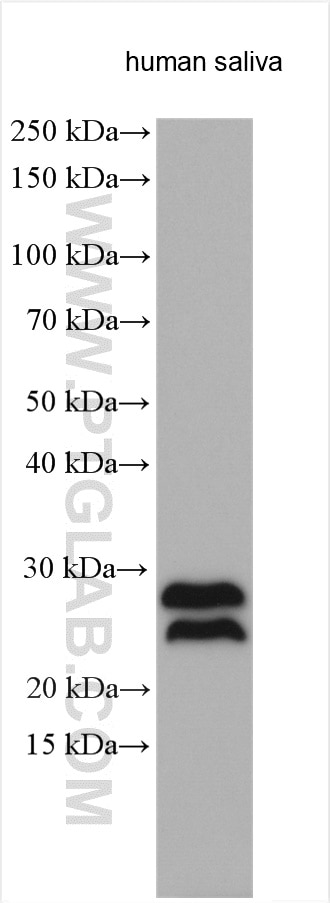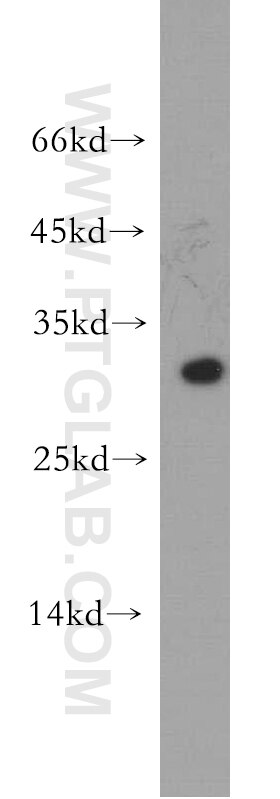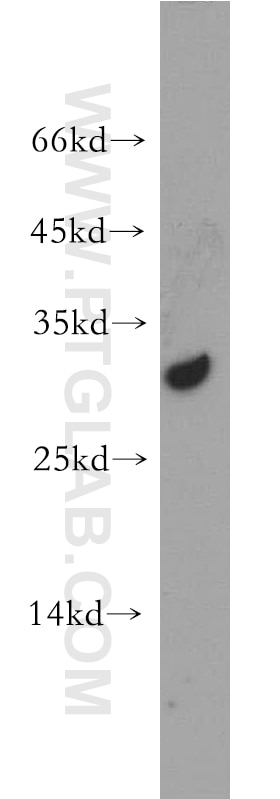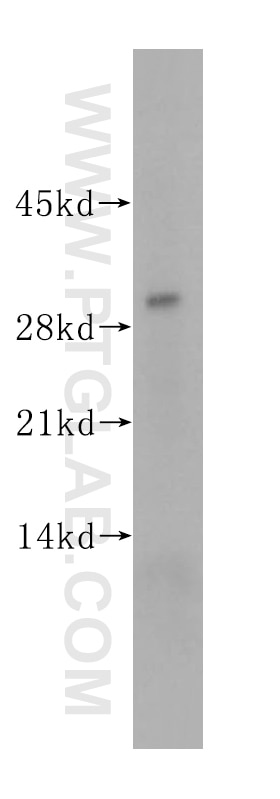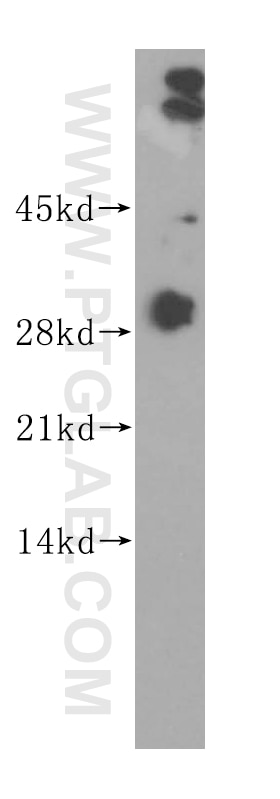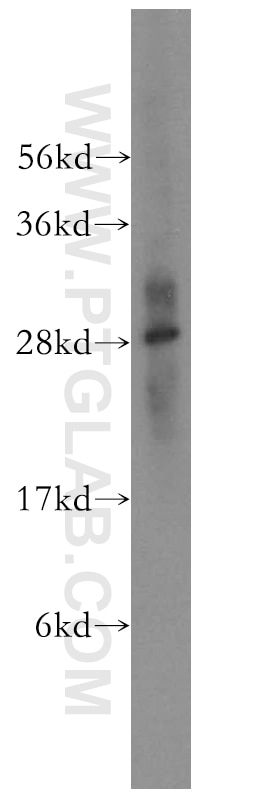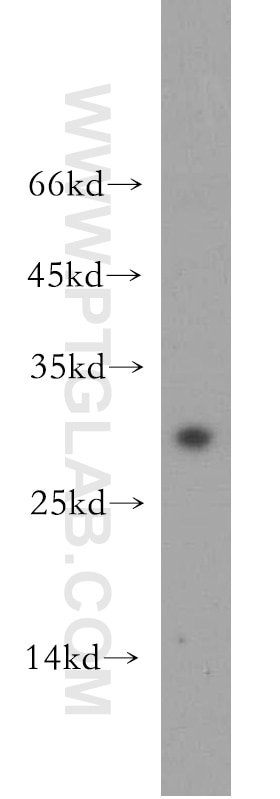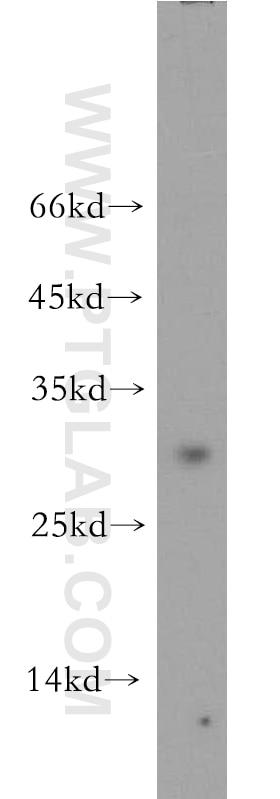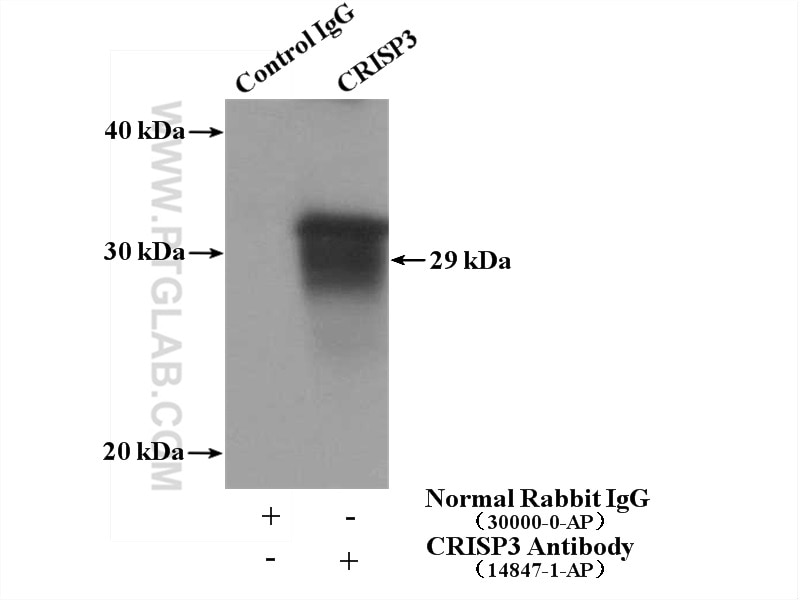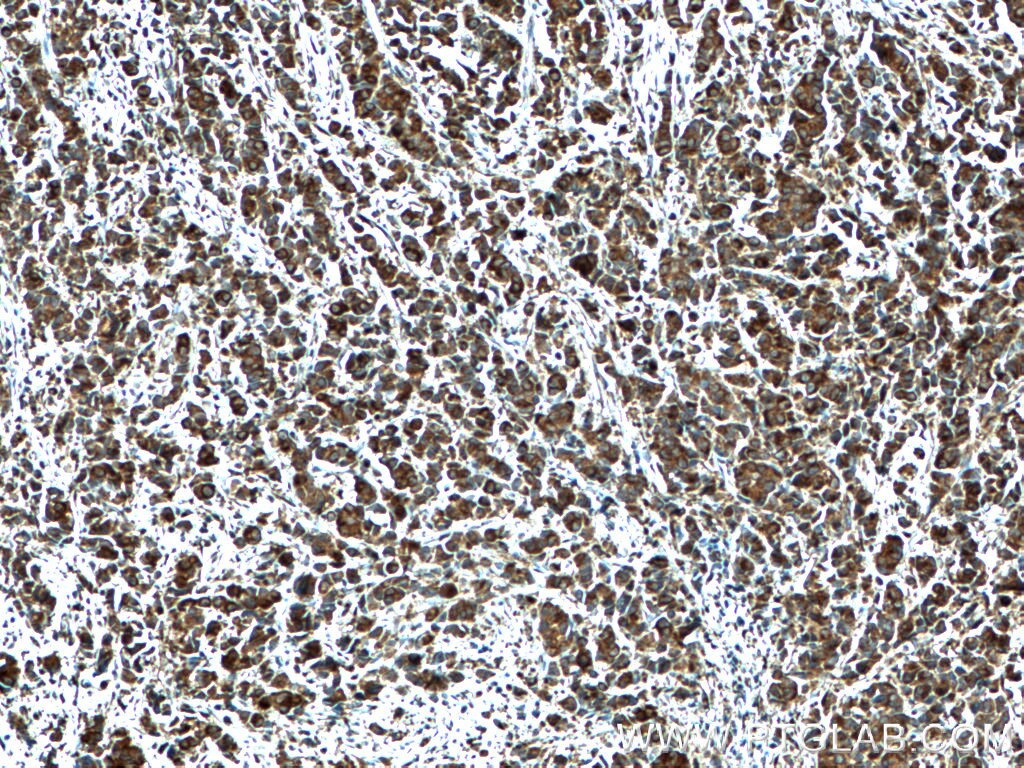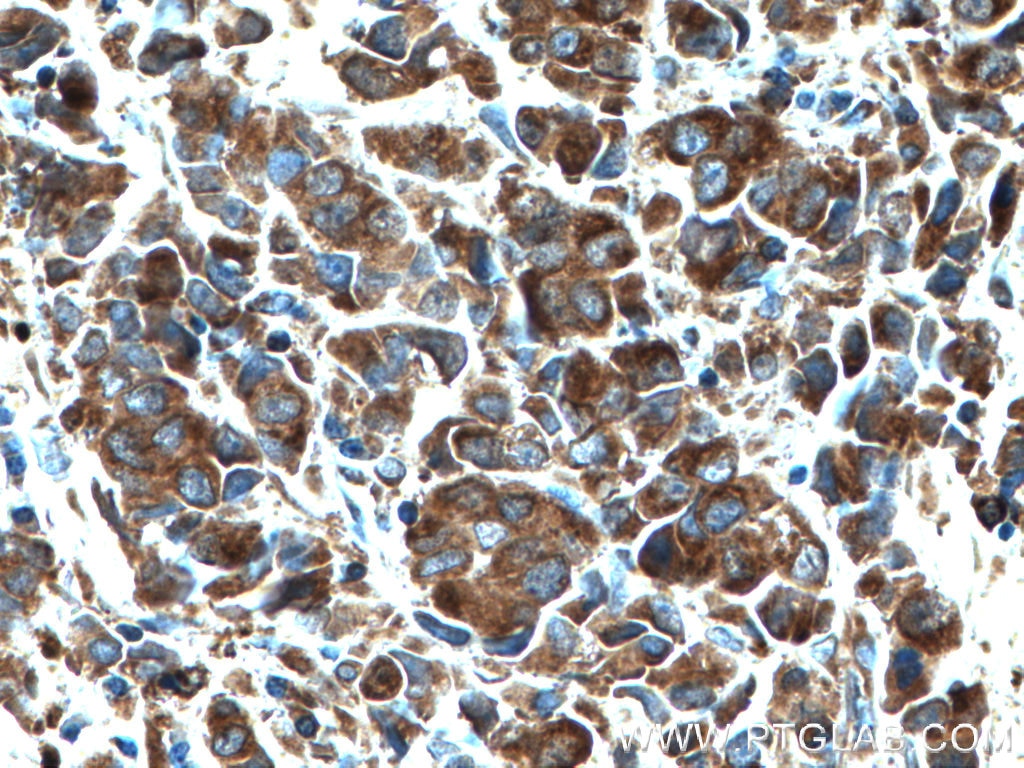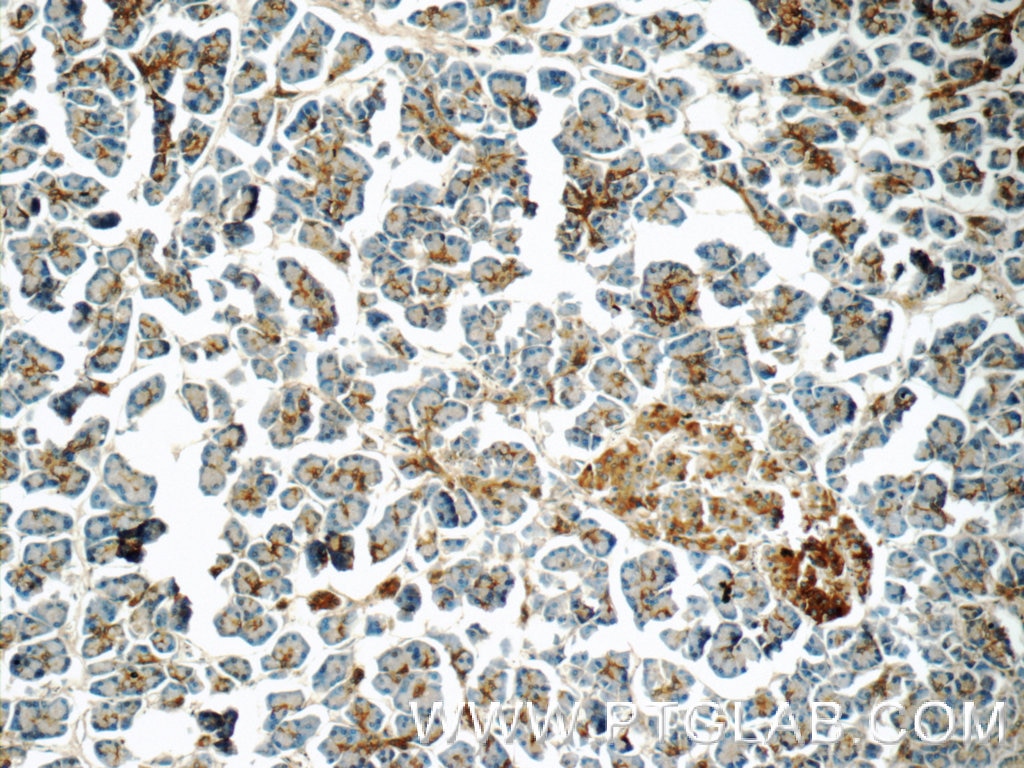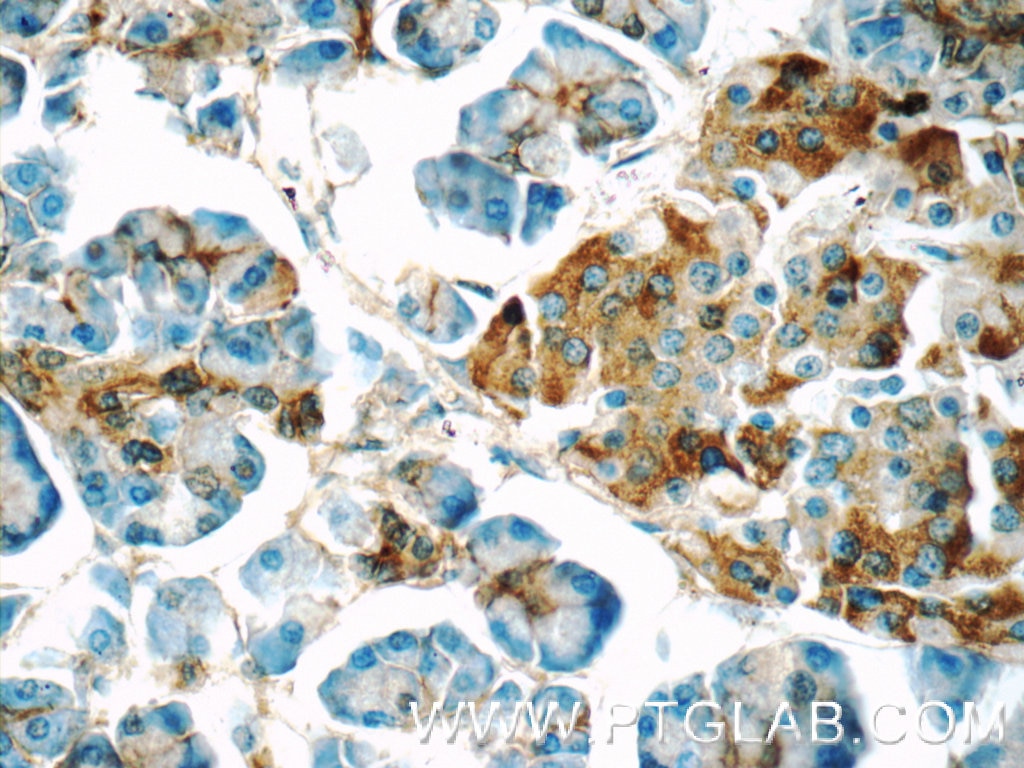- Phare
- Validé par KD/KO
Anticorps Polyclonal de lapin anti-CRISP3
CRISP3 Polyclonal Antibody for WB, IP, IHC, ELISA
Hôte / Isotype
Lapin / IgG
Réactivité testée
Humain, souris
Applications
WB, IP, IHC, ELISA
Conjugaison
Non conjugué
N° de cat : 14847-1-AP
Synonymes
Galerie de données de validation
Applications testées
| Résultats positifs en WB | salive humain, cellules Jurkat, tissu de côlon de souris, tissu de thymus de souris, tissu ovarien de souris, tissu placentaire humain |
| Résultats positifs en IP | tissu placentaire humain |
| Résultats positifs en IHC | tissu de cancer de la prostate humain, tissu pancréatique humain il est suggéré de démasquer l'antigène avec un tampon de TE buffer pH 9.0; (*) À défaut, 'le démasquage de l'antigène peut être 'effectué avec un tampon citrate pH 6,0. |
Dilution recommandée
| Application | Dilution |
|---|---|
| Western Blot (WB) | WB : 1:1000-1:4000 |
| Immunoprécipitation (IP) | IP : 0.5-4.0 ug for 1.0-3.0 mg of total protein lysate |
| Immunohistochimie (IHC) | IHC : 1:50-1:500 |
| It is recommended that this reagent should be titrated in each testing system to obtain optimal results. | |
| Sample-dependent, check data in validation data gallery | |
Applications publiées
| KD/KO | See 1 publications below |
| WB | See 2 publications below |
| IHC | See 3 publications below |
Informations sur le produit
14847-1-AP cible CRISP3 dans les applications de WB, IP, IHC, ELISA et montre une réactivité avec des échantillons Humain, souris
| Réactivité | Humain, souris |
| Réactivité citée | Humain |
| Hôte / Isotype | Lapin / IgG |
| Clonalité | Polyclonal |
| Type | Anticorps |
| Immunogène | Peptide |
| Nom complet | cysteine-rich secretory protein 3 |
| Masse moléculaire calculée | 28 kDa |
| Poids moléculaire observé | 29 kDa |
| Numéro d’acquisition GenBank | NM_006061 |
| Symbole du gène | CRISP3 |
| Identification du gène (NCBI) | 10321 |
| Conjugaison | Non conjugué |
| Forme | Liquide |
| Méthode de purification | Purification par affinité contre l'antigène |
| Tampon de stockage | PBS avec azoture de sodium à 0,02 % et glycérol à 50 % pH 7,3 |
| Conditions de stockage | Stocker à -20°C. Stable pendant un an après l'expédition. L'aliquotage n'est pas nécessaire pour le stockage à -20oC Les 20ul contiennent 0,1% de BSA. |
Informations générales
CRISP3, also known as SGP28, is a glycoprotein that belongs to a family of cysteine-rich secretory proteins (CRISPs). CRISP3 was originally discovered in human neutrophils, but transcripts are widely distributed in exocrine glands (salivary glands, pancreas, and prostate) and also found at lower levels in epididymis, ovary, thymus, and colon. CRISP3 is a potential biomarker for prostate cancer. This antibody can recognize both CRISP2 and CRISP3.
Protocole
| Product Specific Protocols | |
|---|---|
| WB protocol for CRISP3 antibody 14847-1-AP | Download protocol |
| IHC protocol for CRISP3 antibody 14847-1-AP | Download protocol |
| IP protocol for CRISP3 antibody 14847-1-AP | Download protocol |
| Standard Protocols | |
|---|---|
| Click here to view our Standard Protocols |
Publications
| Species | Application | Title |
|---|---|---|
J Natl Cancer Inst Progesterone Receptor Isoform Ratio: A Breast Cancer Prognostic and Predictive Factor for Antiprogestin Responsiveness. | ||
J Hematol Oncol Cysteine- rich secretory protein 3 (CRISP3), ERG and PTEN define a molecular subtype of prostate cancer with implication to patients' prognosis. | ||
Int J Biol Sci Circular RNA hsa_circ_0003823 promotes the Tumor Progression, Metastasis and Apatinib Resistance of Esophageal Squamous Cell Carcinoma by miR-607/CRISP3 Axis
| ||
